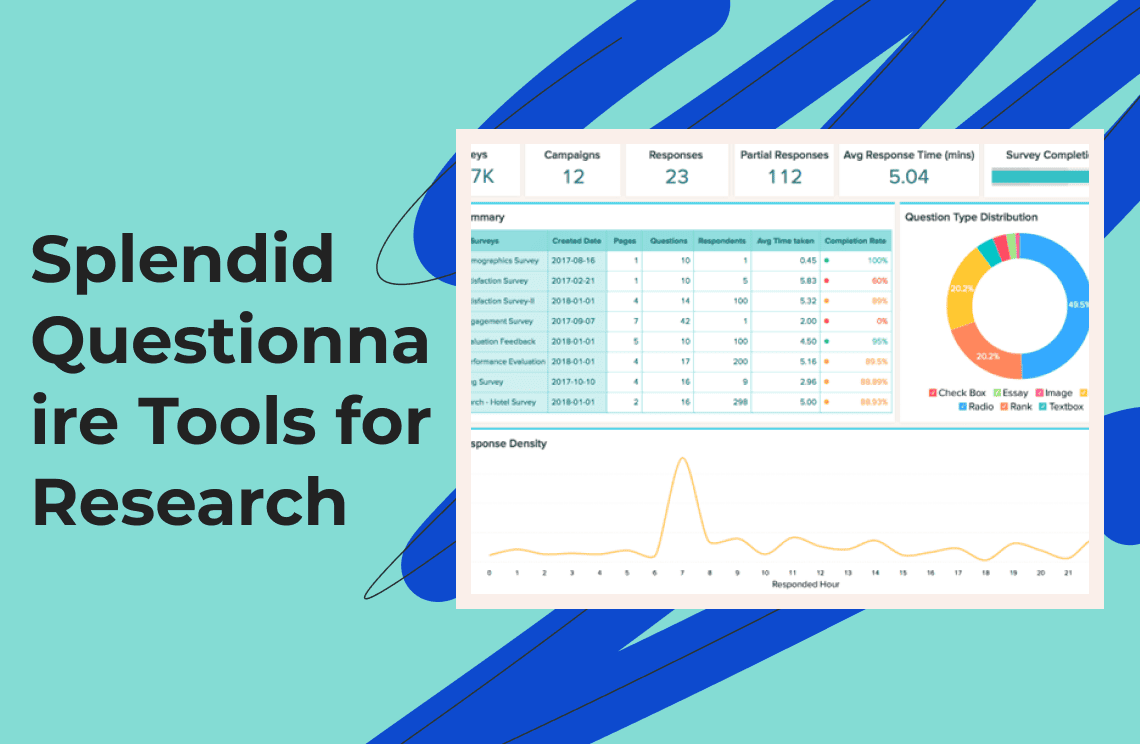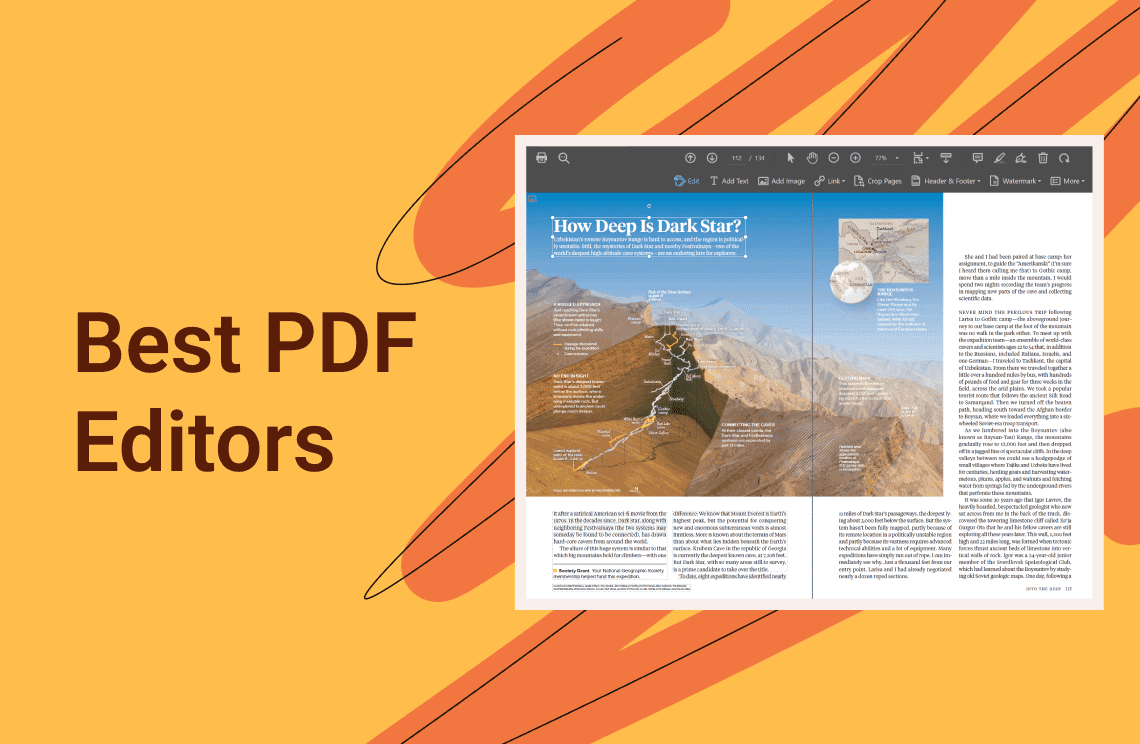The way to collect valid data in both academic and business research lies with an effective questionnaire design. Fortunately, several different tools are at your disposal to help in the process of designing, distributing, and then analyzing questionnaires. Following are seven magnificent questionnaire tools that are outstanding in features, versatility, and usability.
Why will I have to use the research tools for questionnaires?
- Efficiencies/Time Savings: The tools for questionnaires save time in creating, issuing, and collecting data compared to conventional paper-based methods. Minutes take the place of hours and even days in the process of making a survey analysis that one might want to conduct and issue, wherein one would then receive some data. Digital distribution allows the data collection process to move much faster for a large audience.
- Improved Data Accuracy and Reliability: Most tools have inbuilt validation features that ensure a response is full and accurate, hence minimizing errors and inconsistencies. Automatic data capture eliminates most human errors found when data is manually entered from a paper survey design. Standardized data formats make analysis and comparison across responses easier.
- Cost-Effective: It saves on print costs of the questionnaires, mailing, and data entry due to paper-based questionnaires. Most of the tools have tiered pricing, and in most cases, this may even include free versions that can suit all sizes of budgets.
- Increased Reach, and Accessibility: Online questionnaires can be forwarded to anywhere in the world and can reach a wide, more diverse audience without any geographical constraints. The respondents can complete a survey analysis using different devices, such as smartphones, tablets, and computers, which increase response rates.
Comparison Table
Questionnaire tools | Key features | Pros | Cons | Pricing |
|
|
| • Enterprise pricing: Pricing is bespoke to the organization's requirements. • Free tier: This offers a free trial, but ongoing use requires a paid plan from approximately $1,500 yearly. | |
|
|
| • Basic Plan: From $49/month • Professional Plan: About $149/month • Enterprise Plan: Pricing for advanced needs • Free Trial: Available to new users. | |
|
|
| • Free Plan: Suitable only for 10 questions and 100 responses each month. • Basic Plan: Starts at €25/month. • Plus Plan: €35/month. • Business Plan: €50/month. • Premium Plans: Custom pricing for enterprise needs. | |
|
|
| • Self-Hosted Version: Free • LimeSurvey GmbH Hosting: From €29/month for professional plans • Enterprise Solutions: For large organizations, pricing is by quotation | |
|
|
|
| |
|
|
|
| |
|
| Lacks advanced survey logic, branching, and analytics. Compared to other tools, it has basic design and branding options. • No Offline Abilities: To create and fill out questionnaires, internet access is required. |
|
7 Outstanding Questionnaire Tools
1. Qualtrics
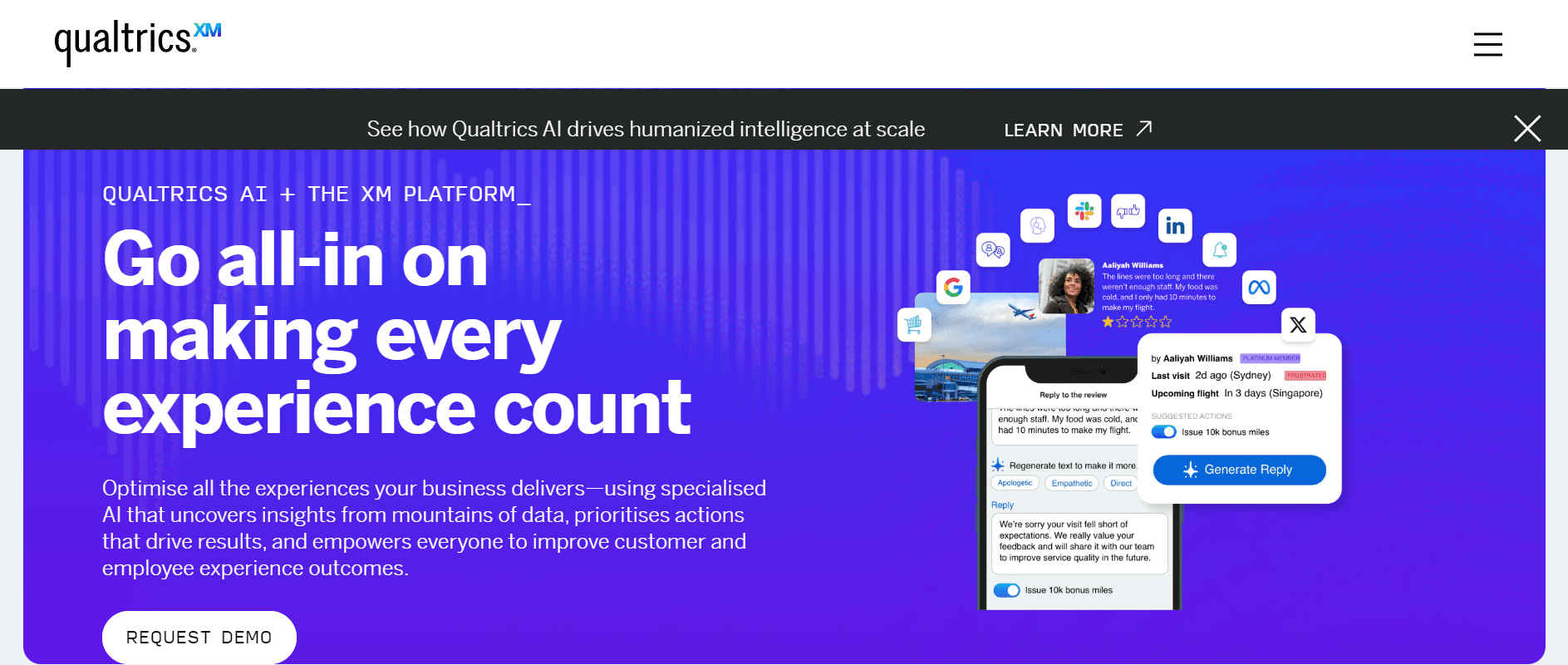
- Overview: Qualtrics is one of the higher-end solutions that has been used extensively in top-tier academic research and big businesses.
- Key features: Best survey software with logic and branching, High degree of customization, Strong analysis and reporting, Third-party system integrations (e.g., CRM, LMS), Robust security and compliance standards, including but not limited to GDPR and HIPAA.
- Why it is good: Its feature set and scalability make it ideal for high-level research projects requiring detailed data analysis and integration with other systems.
2. SurveyMonkey

- Overview: Extremely intuitive and user-friendly online survey tool for novice and advanced users.
- Key features: Drag-and-drop survey design maker, many templates and question types, real-time responses and analytics, multilingual, with integrations of Slack, Mailchimp, and Salesforce.
- Why it is great: SurveyMonkey strikes a great balance between ease of use and powerful features. This variety of choices makes it a versatile platform for businesses and academic researchers.
3. Google Forms
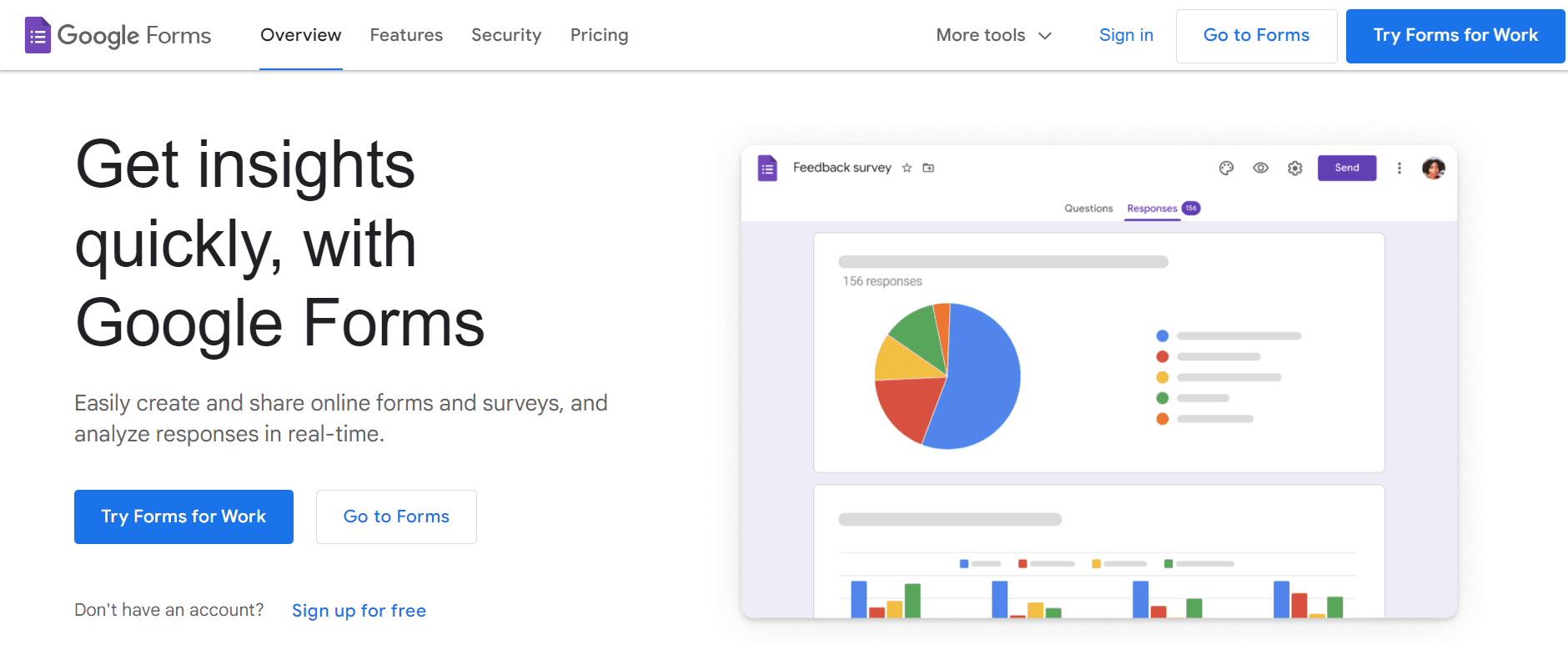
- Overview: A free, uncomplicated tool that's part of Google Workspace.
- Key features: An easy-to-navigate interface Real-time collaboration Integration with Google Sheets for data analysis A wide variety of question types with plenty of personalization options Free of cost to use once one has signed up for an account through Google.
- Why it is great: For those looking for a completely free solution that can easily integrate into other services,
4. Typeform
- Overview: Typeform is an excellent choice for simple surveys with fast data collection known for its interactive and engaging survey designs that enhance respondent experience.
- Key features: Conversational form layout for better engagement, highly customizable templates and themes, Conditional logic and personalized paths, Integration with tools like Zapier, HubSpot, and Mailchimp, Analytics, and reporting features.
- Why it is great: Typeform's emphasis on user experience increases response rates, making it excellent for surveys where engagement is key.
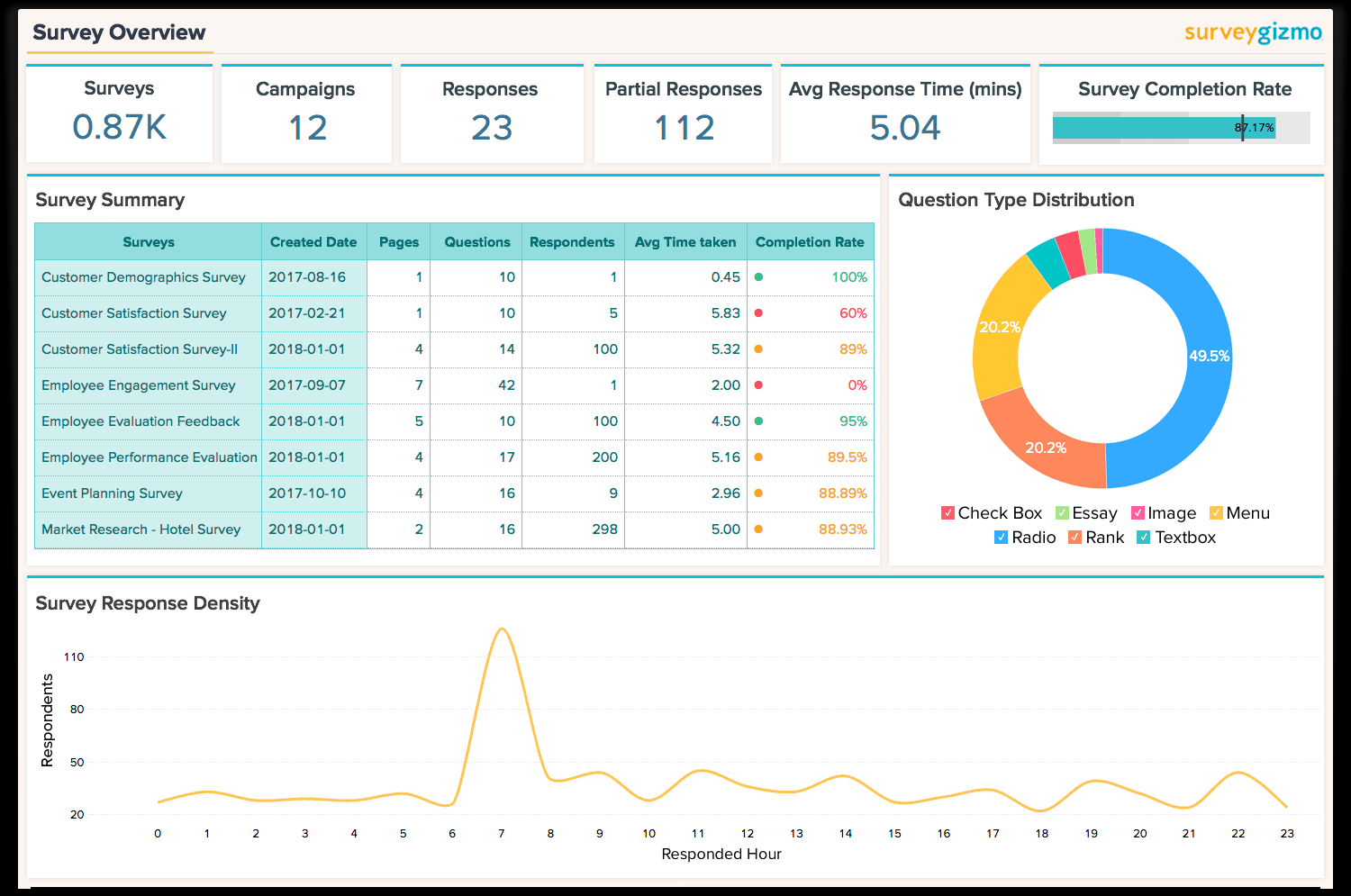
5. Alchemy (formerly SurveyGizmo)
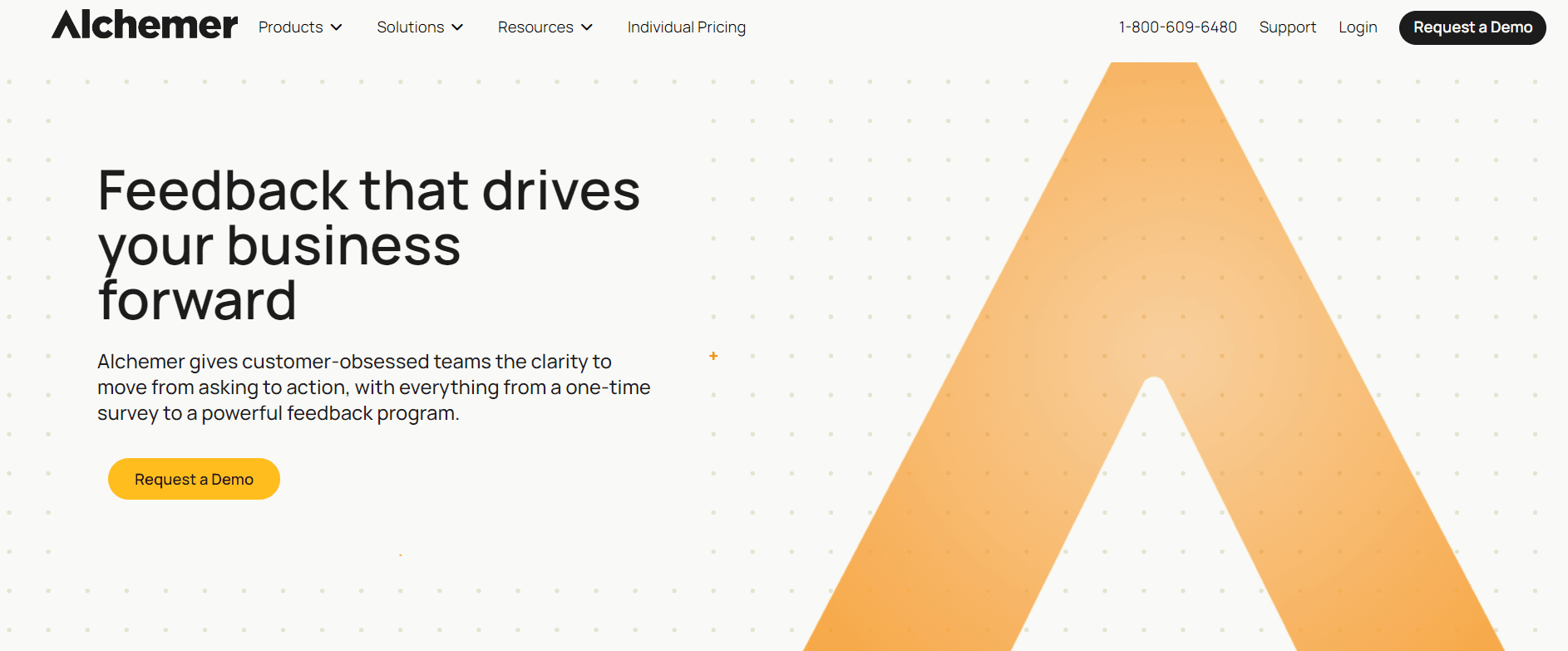
- Overview: Versatile online surveying tool that can cater to survey requirements, from simple to high complexity.
- Key features: Advanced logic questionnaires, Data analysis and reporting, Integration with a large number of third-party integrations, Strong security, and API for integrations.
- Why it is great: Alchemer offers huge customizability; and flexibility for specific, detailed research projects with unique handling and integration needs.
6. SoGoSurvey
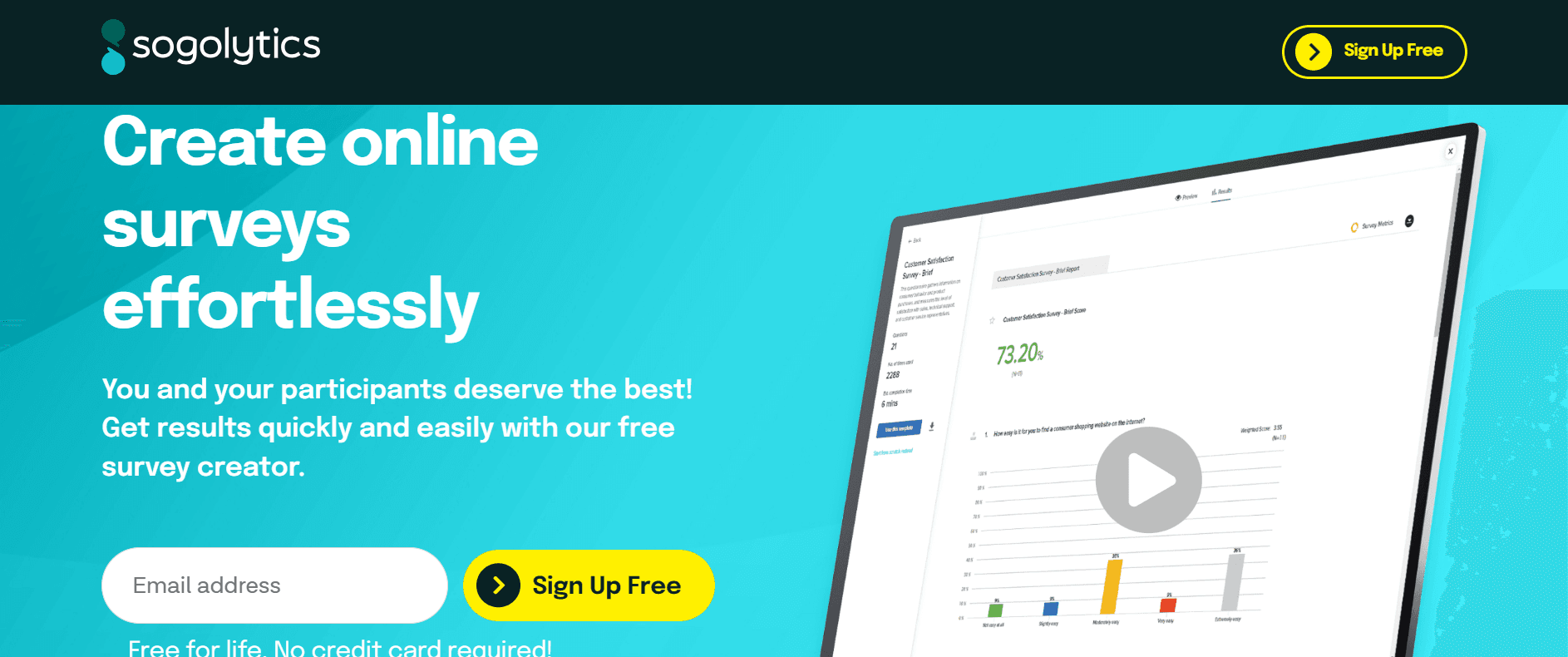
- Overview: A leading survey platform designed for businesses and researchers alike who look forward to acquiring deep insights.
- Key features: Real-time analytics and reporting, Offline data collection, Compliance with data protection regulations, Integration with CRM and other business tools.
- Why it is great: SoGoSurvey offers a powerhouse set of features for deep data gathering and analysis, making it great for organizations that need trustworthy, secure survey solutions.
7. LimeSurvey
- Overview: This free and open-source online survey tool gives you high flexibility and control over the design of your surveys and data.
- Key features: Fully customizable survey templates. Supports complex question types and logic. It exports data in different formats: CSV, SPSS, etc. Self-hosted option for full data control. Active community and extensive documentation.
- Why it is great: For researchers who prefer open-source solutions that can host surveys on their servers, LimeSurvey provides unparalleled flexibility and control over the entire survey process.
FAQs
Q: What are the major differences between Qualtrics and SurveyMonkey?
A: Because Qualtrics features a rich set of features, including scalability, and suitability for large enterprise organizations and complex research studies, it is considered a premium online survey platform. With Qualtrics, you will have the option to perform extended customization, strong data analysis, and robust integrations with other enterprise systems. In contrast, SurveyMonkey is more user-friendly and within the budget of a larger number of people, small, and even medium-sized businesses. It's cheaper, and more approachable for simple needs, even though it offers numerous templates, and its features range from simple to advanced.
Q: Which online questionnaire tool is perfect for a beginner?
A: Both Google Forms and SurveyMonkey have user-friendly interfaces and are perfectly suitable for non-professional users. Google Forms will appeal more to the wider audience because it is free and deeply integrated with other applications in Google Workspace. SurveyMonkey offers a user-friendly template and an extremely easy-to-work-with survey builder, especially for novice survey makers.
Q: Am I able to use these resources for free?
A: Yes, most of the tools in the questionnaires listed here have free plans with basic functionality:
- Google Forms: It is entirely free if you have a Google account.
- SurveyMonkey: It has a free-of-cost plan with reduced functionality up to 10 questions and up to 100 responses per survey.
- Typeform: The free plan allows up to 10 questions and 100 responses per month.
- LimeSurvey: Free self-hosted version available.
Advanced functionality, higher response limits, and premium support are often reserved for those who pay.
Q: How secure are these questionnaire tools?
A: The level of security does differ between the research tools:
- Qualtrics, Alchemer, SoGoSurvey: It is sound in terms of security, data encryption, and compliance with regulations like GDPR and HIPAA.
- LimeSurvey Self-hosted: In case you self-host, you then take total responsibility for data security, depending on the kind of server setup you have.
- SurveyMonkey, Typeform: Strong security protocols are in place here, too, but the level of compliance can differ based on your plan level.
- Google Forms provides light security throughout the overall infrastructure of Google; however, it cannot meet all compliance requirements for sensitive data.

